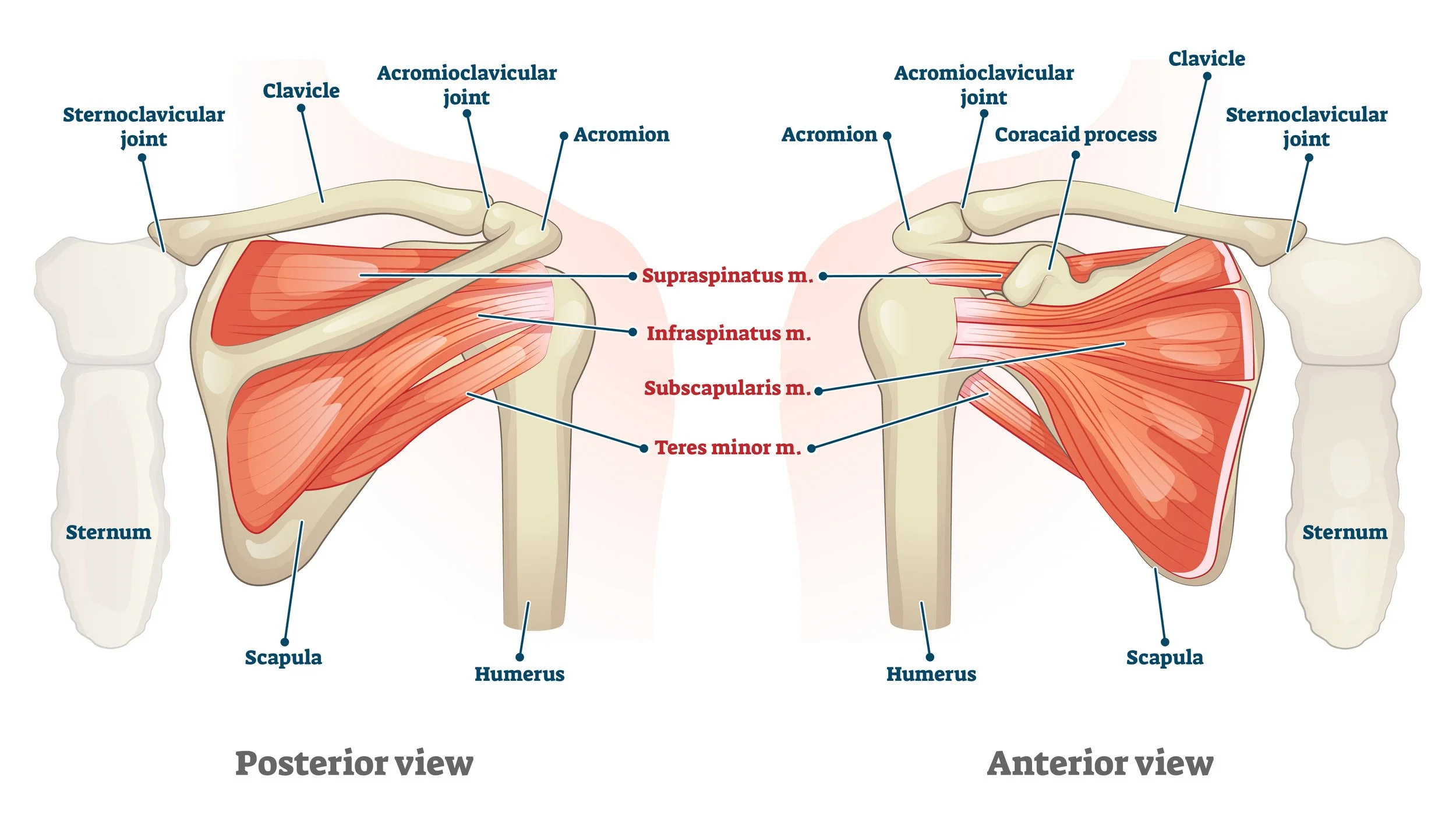How Can I heal My rotator Cuff?
What is the best course of action to help your rotator cuff?
One of the easiest, least costly, and effective strategies is to check in with your physical therapist. A physical therapist will evaluate your current symptoms, access your goals, and physically take your shoulder through a number of tests. Depending on what they find they will then prescribe the most effective plan to follow this could be as mundane as changing your work set up and sleeping positions or checking in with an orthopedic physician for a full workup. Establishing an early and strong relationship with your physical therapist will go a long way to successful outcomes and reaching your goals.
What Will a physical therapist do for a torn rotator cuff?
After a thorough examine a physical therapist will typically prescribe a set of stretches, exercises, strengthening, strategies to help for the short-term in pain reduction and for the long-term in strengthening and loading the appropriate structures. As a patient you will leave with a written plan of what to do and also get a video of the exercises sent to you.
An appointment may also include:
Ergonomic adjustments
Proper Loading of the tissues
Modifying your workout routine(s) (frequency, amounts, or technique)
Bike adjustments
Joint mobilization: shoulder, AC joint, SC joint, elbow, thoracic and cervical spine
Soft tissue techniques (massage/myofascial release / deep friction)
Postural and Shoulder taping
Tools: Graston, Theragun, Hypervolt, and Astym
Blood Flow Restriction and other modalities
Breathing exercises
More Shoulder Articles & FAQs
What Exercises Are Bad for the Rotator Cuff?
How Can I tell If I Have a Strain or Torn Rotator Cuff?
What Are the Tests for a Rotator Cuff Tear?
Do I need an MRI or MRI Arthrogram for my Shoulder?
What is Wrong With My Shoulder?
What is Rotator Cuff Tendinitis?
Contributing Authors, Collaborators, & Colleagues:
Heidi Biehl, PT, DPT, OCS, CSCS, CFSC
Matt Sato, PT, TPIc, SFMA
Benjamin Wobker, PT, MSPT, CSCS, SFMA
Joe nance, PT, MPT, OCS, COMT, FAAOMPT, ATC
DR. Samuel Koo, MD
DR. Jamie Antoine, MD
Dr. Vincent Santoro, MD
Dr. Camile Clinton, MD
Dr. Bob AdamS, DO
Dr. Christian Peterson, DO
DR. Chris Wahl, MD
Dr. Dayne Mickelson, MD
DR. Tyler Nathe, MD
Dr. Thomas CastLe,MD
Dr. Michael Sailer, MD
Dr. Greg Komenda, MD
References:
Orthopedic Physical Assessment, 4th Edition. David J. Magee, 2006. www.emedicine.medscape.com/article/93095-overview
Kim TK, et al. "Clinical features of the different types of SLAP lesions" Journal of Bone Joint Surgery Am. 2003 Jan;85-A(1):66-71. http://emedicine.medscape.com/article/1261463-overview
Mayo Clinic: Rotator Cuff; https://www.mayoclinic.org/diseases-conditions/rotator-cuff-injury/symptoms-causes/syc-20350225
WebMD: Rotator Cuff; https://www.webmd.com/pain-management/qa/what-causes-rotator-cuff-problems
Disclaimer:
This website is an information and education resource for health professionals and individuals with injuries. It is not intended to be a service for patients and should not be regarded as a source of medical or diagnostic determination, or used as a substitute for professional medical instruction or advice. Not all conditions and treatment modalities are described on this website. Any liability (in negligence or otherwise) arising from any third party acting, or refraining from acting, on any information contained on this website is hereby excluded.



